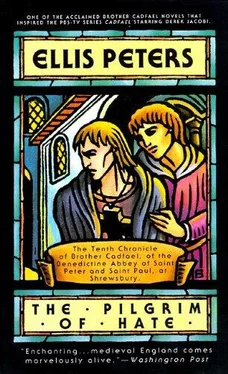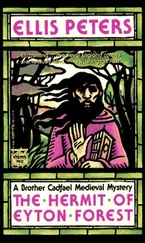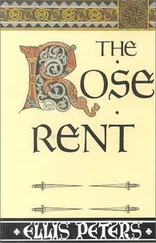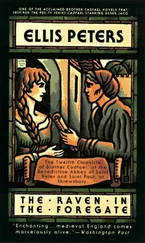Ellis Peters - The Pilgrim of Hate
Здесь есть возможность читать онлайн «Ellis Peters - The Pilgrim of Hate» весь текст электронной книги совершенно бесплатно (целиком полную версию без сокращений). В некоторых случаях можно слушать аудио, скачать через торрент в формате fb2 и присутствует краткое содержание. Жанр: Исторический детектив, на английском языке. Описание произведения, (предисловие) а так же отзывы посетителей доступны на портале библиотеки ЛибКат.
- Название:The Pilgrim of Hate
- Автор:
- Жанр:
- Год:неизвестен
- ISBN:нет данных
- Рейтинг книги:4 / 5. Голосов: 1
-
Избранное:Добавить в избранное
- Отзывы:
-
Ваша оценка:
- 80
- 1
- 2
- 3
- 4
- 5
The Pilgrim of Hate: краткое содержание, описание и аннотация
Предлагаем к чтению аннотацию, описание, краткое содержание или предисловие (зависит от того, что написал сам автор книги «The Pilgrim of Hate»). Если вы не нашли необходимую информацию о книге — напишите в комментариях, мы постараемся отыскать её.
The Pilgrim of Hate — читать онлайн бесплатно полную книгу (весь текст) целиком
Ниже представлен текст книги, разбитый по страницам. Система сохранения места последней прочитанной страницы, позволяет с удобством читать онлайн бесплатно книгу «The Pilgrim of Hate», без необходимости каждый раз заново искать на чём Вы остановились. Поставьте закладку, и сможете в любой момент перейти на страницу, на которой закончили чтение.
Интервал:
Закладка:
Brother Cadfael had wasted no time in clambering into his boots, kilting his habit, and taking and saddling the best horse he could find in the stables. It was not often he had the chance to indulge himself with such half-forgotten delights, but he was not thinking of that now. He had left considered word with the messenger who was already hurrying across the bridge and into the town, to alert Hugh; and Hugh would ask no questions, as the abbot had asked none, recognising the grim urgency there was no leisure now to explain.
“Say to Hugh Beringar,” the order ran, “that Ciaran will make for the Welsh border the nearest way, but avoiding the too open roads. I think he’ll bear south a small way to the old road the Romans made, that we’ve been fools enough to let run wild, for it keeps a steady level and makes straight for the border north of Caus.”
That was drawing a bow at a venture, and he knew it, none better. Ciaran was not of these parts, though he might well have some knowledge of the borderland if he had kin on the Welsh side. But more than that, he had been here these three days past, and if he had been planning some such escape all that time, he could have picked the brains of brothers and guests, on easily plausible ground. Time pressed, and sound guessing was needed. Cadfael chose his way, and set about pursuing it.
He did not waste time in going decorously out at the gatehouse and round by the road to take up the chase westward, but led his horse at a trot through the gardens, to the blank astonishment of Brother Jerome, who happened to be crossing to the cloisters a good ten minutes early for Compline. No doubt he would report, with a sense of outrage, to Prior Robert. Cadfael as promptly forgot him, leading the horse round the unharvested pease field and down to the quiet green stretches of the brook, and across to the narrow meadow, where he mounted. The sun was dipping its rim beyond the crowns of the trees to westward. Into that half-shine, half-shadow Cadfael spurred, and made good speed while the tracks were familiar to him as his own palm. Due west until he hit the road, a half-mile on the road at a canter, until it turned too far to the south, and then westward again for the setting sun. Ciaran had a long start, even of Matthew, let alone of all those who followed now. But Ciaran was lame, burdened and afraid. Almost he was to be pitied.
Half a mile further on, at an inconspicuous track which he knew, Cadfael again turned to bear south-west, and burrowed into deepest shade, and into the northernmost woodlands of the Long Forest. No more than a narrow forest ride, this, between sweeping branches, a fragment of ancient wood not worth clearing for an assart, being bedded on rock that broke surface here and there. This was not yet border country, but close kin to it, heaving into fretful outcrops that broke the thin soil, bearing heather and coarse upland grasses, scrub bushes and sparsity trees, then bringing forth prodigal life roofed by very old trees in every wet hollow. A little further on this course, and the close, dark woods began, tall top cover, heavy interweaving of middle growth, and a tangle of bush and bramble and ground-cover below. Undisturbed forest, though there were rare islands of tillage bright and open within it, every one an astonishment.
Then he came to the old, old road, that sliced like a knife across his path, heading due east, due west. He wondered about the men who had made it. It was shrunken now from a soldiers’ road to a narrow ride, mostly under thin turf, but it ran as it had always run since it was made, true and straight as a lance, perfectly levelled where a level was possible, relentlessly climbing and descending where some hummock barred the way. Cadfael turned west into it, and rode straight for the golden upper arc of sun that still glowed between the branches.
In the parcel of old forest north and west of the hamlet of Hanwood there were groves where stray outlaws could find ample cover, provided they stayed clear of the few settlements within reach. Local people tended to fence their holdings and band together to protect their own small ground. The forest was for plundering, poaching, pasturing of swine, all with secure precautions. Travellers, though they might call on hospitality and aid where needed, must fend for themselves in the thicker coverts, if they cared to venture through them. By and large, safety here in Shropshire under Hugh Beringar was as good as anywhere in England, and encroachment by vagabonds could not survive long, but for brief occupation the cover was there, and unwanted tenants might take up occupation if pressed.
Several of the lesser manors in these border regions had declined by reason of their perilous location, and some were half-deserted, leaving their fields untilled. Until April of this year the border castle of Caus had been in Welsh hands, an added threat to peaceful occupation, and there had not yet been time since Hugh’s reclamation of the castle for the depleted hamlets to re-establish themselves. Moreover, in this high summer it was no hardship to live wild, and skilful poaching and a little profitable thievery could keep two or three good fellows in meat while they allowed time for their exploits in the south to be forgotten, and made up their minds where best to pass the time until a return home seemed possible.
Master Simeon Poer, self-styled merchant of Guildford, was not at all ill-content with the pickings made in Shrewsbury. In three nights, which was the longest they dared reckon on operating unsuspected, they had taken a fair amount of money from the hopeful gamblers of the town and Foregate, besides the price Daniel Aurifaber had paid for the stolen ring, the various odds and ends William Hales had abstracted from market stalls, and the coins John Shure had used his long, smooth, waxed finger-nails to extract from pocket and purse in the crowds. It was a pity they had had to leave William Hales to his fate during the raid, but all in all they had done well to get out of it with no more than a bruise or two, and one man short. Bad luck for William, but it was the way the lot had fallen. Every man knew it could happen to him.
They had avoided the used tracks, refraining from meddling with any of the local people going about their business, and done their plundering by night and stealthily, after first making sure where there were dogs to be reckoned with. They even had a roof of sorts, for in the deepest thickets below the old road, overgrown and well-concealed, they had found the remains of a hut, relic of a failed assart abandoned long ago. After a few days more of this easy living, or if the weather should change, they would set off to make their way somewhat south, to be well clear of Shrewsbury before moving across to the east, to shires where they were not yet known.
When the rare traveller came past on the road, it was almost always a local man, and they let him alone, for he would be missed all too soon, and the hunt would be up in a day. But they would not have been averse to waylaying any solitary who was clearly a stranger and on his way to more distant places, since he was unlikely to be missed at once, and further, he was likely to be better worth robbing, having on him the means to finance his journey, however modestly. In these woods and thickets, a man could vanish very neatly, and for ever.
They had made themselves comfortable that night outside their hut, with the embers of their fire safe in the clay-lined hollow they had made for it, and the grease of the stolen chicken still on their fingers. The sunset of the outer world was already twilight here, but they had their night eyes, and were wide awake and full of restless energy after an idle day. Walter Bagot was charged with keeping such watch as they thought needful, and had made his way in cover some distance along the narrow track towards the town. He came sliding back in haste, but shining with anticipation instead of alarm.
Читать дальшеИнтервал:
Закладка:
Похожие книги на «The Pilgrim of Hate»
Представляем Вашему вниманию похожие книги на «The Pilgrim of Hate» списком для выбора. Мы отобрали схожую по названию и смыслу литературу в надежде предоставить читателям больше вариантов отыскать новые, интересные, ещё непрочитанные произведения.
Обсуждение, отзывы о книге «The Pilgrim of Hate» и просто собственные мнения читателей. Оставьте ваши комментарии, напишите, что Вы думаете о произведении, его смысле или главных героях. Укажите что конкретно понравилось, а что нет, и почему Вы так считаете.












